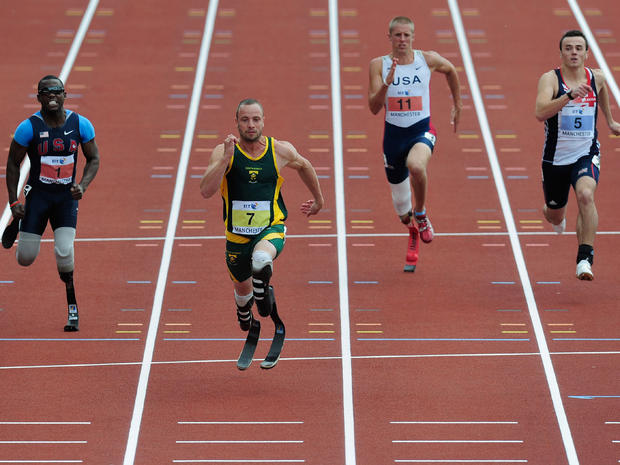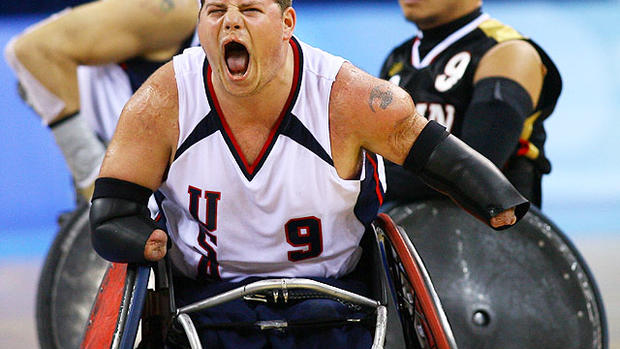Do Oscar Pistorius' high-tech prostheses give sprinter an unfair advantage?
(CBS) They call sprinter Oscar Pistorius the "Blade Runner," for the j-shaped prostheses he wears. Now the 24-year-old has been named to the South African team, becoming the first amputee to compete at a world championship track and field event against able-bodied athletes.
Pictures: Disabled? Says who? 14 courageous athletes
"I have dreamt for such a long time of competing in a major championship and this is a very proud moment in my life," Pistorius said on his website.
But the blades have been a constant target of controversy since Pistorius broke onto the track and field scene.
Pistorius was born without fibulas in his lower legs, which were amputated when he was 11 months old, the New York Times reported. The prostheses he wears, called Cheetahs, were developed by an Icelandic company called Ossur. According to its website, the prosthetic is made of a light carbon composite and is designed to store and release energy in ways that mimic the foot and ankle.
A study published in the Journal of Applied Physiology found the Cheetahs gave the South African a 10-second advantage in the 400-meter race, the Associated Press reported in 2009. Study authors Drs. Peter Weyand and Matthew Bundle, physiology professors at Southern Methodist University and the University of Montana respectively, said, "The blades enhance sprint running speeds by 15 to 30 percent. The springy, lightweight blades allow Pistorius to attain the same sprinting speeds while applying 20 percent less ground force than intact-limb runners."
Australia's Daily Telegraph followed up with those researchers after Pistorious was named to the world championships team where they repeated their claim. "The scientific evidence clearly indicates that Oscar Pistorius's lightweight, compliant lower limbs provide a major advantage over biological limbs during competitive sprint running," they wrote The Telegraph.
The doctors also noted, however, his prosthetics might cause a disadvantage at the start position since he can't bend down, and may make it harder to recover than his able-bodied competitors.
A 2010 commentary called "Counterpoint: Artificial legs do not make artificially fast running speeds possible," published in the same journal, Dr. Rodger Kram, an associate professor of integrative physiology at the University of Colorado, and his colleagues, wrote that there was "insufficient evidence" to conclude Pistorius' blades provided an advantage.
"The notion that lightweight prostheses are the only reason for Pistorius' rapid swing times ignores that he has had many years to train and adapt his neuromuscular system to using prostheses."
Should Oscar Pistorius be allowed to compete against able-bodied athletes?

